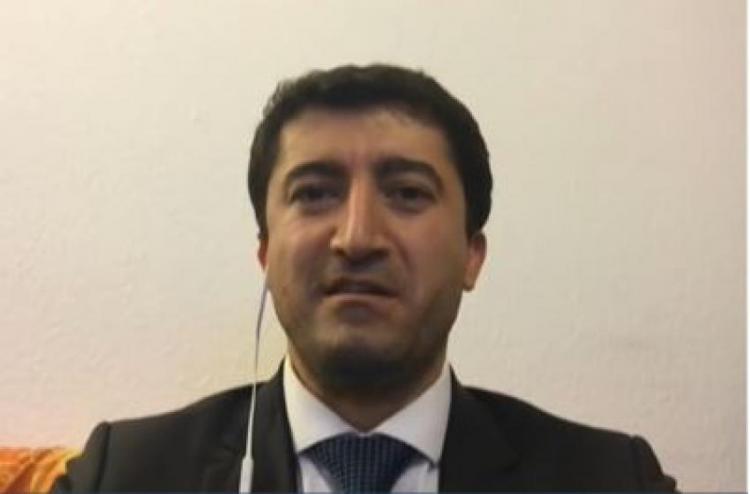Turkey s provocation of the two poles won’t last, and SDF must show flexibility in dealing with Russia – Analyst
Ein Issa – North-Press Agency
Farhad Batiyev, an expert on the Russian affairs told North Press that Turkey's continued blackmail to the world's two poles; the United States and Russia won't bear for long, calling on the Syrian Democratic Forces (SDF) not to be dragged behind the Turkish provocations, and to show great flexibility in dealing with the Russian and Syrian government forces. He confirmed that, Russia won't accept the current status of Idlib, and it is seeking to remove all forces from Syria, including Turkey, but the U.S. withdrawal and the Turkish operation in northeastern Syria have confused the situation.
In an interview with North-Press, Batiyev added that Turkey's blackmail of the world's two poles (the United States and Russia), and obtaining some of the gains wouldn't last for long, and that it "seeks to exploit these political and field conditions to make sure that the Kurds won't get any rights in future Syria.”
He stated that it should be paid attention to this particular point, and not to be dragged to the Turkish provocations carried out from time to time, "because it realizes that the pressure will be limited at this stage.”
Taking out all powers
On the other hand, regarding the situation in Idlib, he said that the general atmosphere in Russia shows that, it won't accept the current situation there, and in its strategy, it plans to take out all forces from Syria, including taking out Turkish forces from all the areas they control now. He explained that the exit of the Turkish forces was delayed because of the U.S. decision of the withdrawal. Before the Turkish military invasion in northeastern Syria, there were major campaigns by Russia and the Syrian government to restore the areas of Idlib, "Khan Shaykhoun and other areas have already been liberated, but by a decision of Trump, Turkey and its groups launched a military operation in northeastern Syria and things got mixed up.”
Batiyev pointed out that, after the landmarks of the forces in the East of the Euphrates were defined, naming the so-called safe zone and the conduct of Russian-Turkish patrols, Idlib began to resurface and new military movements would be seen, and that Russia is seeking to restore the Syrian government’s control over these areas gradually.
Turkey leans on the groups
Batiyev explained that the Turkish forces will support the Syrian armed opposition groups in Idlib and in northeastern Syria as well, because the presence of these groups makes Turkey influential in the Syrian file, and without this support, it will have no place.
"The Ataturk government followed the same policy by using the groups that supported them against all who opposed them, but this was a hundred years ago, and the world has changed, its seeking to show its importance and effectiveness in this way will take it into a swamp which will be difficult to get out of it,” he added.
As for the ceasefire agreement in the de-escalation zones between Russia and Turkey, the expert of the Russian affairs said that it won't last for long, and questioned the trade-off of Idlib with other areas, and let the Syrian government forces (SDF) and all the opposition groups fight with each other, because Idlib is very important for Russia, as he said.
Demanding flexibility
"This may happen if the SDF and the Autonomous Administration were very stubborn in their attitude and show difficulties in the dialogue and understanding with Russia and the Syrian government forces, then the scourge of Idlib will be the responsibility of the SDF,” Batiyev said.
He a stressed that in the event of greater understandings and agreements between the SDF and Russia, it may be agreed then to start joint military operations to liberate some areas or to protect them with the Syrian government forces, "so the attitudes in these sensitive situations require great flexibility.”
He called on the SDF and the Autonomous Administration of northeastern Syria to show great flexibility in their dealings with the Russian government.

